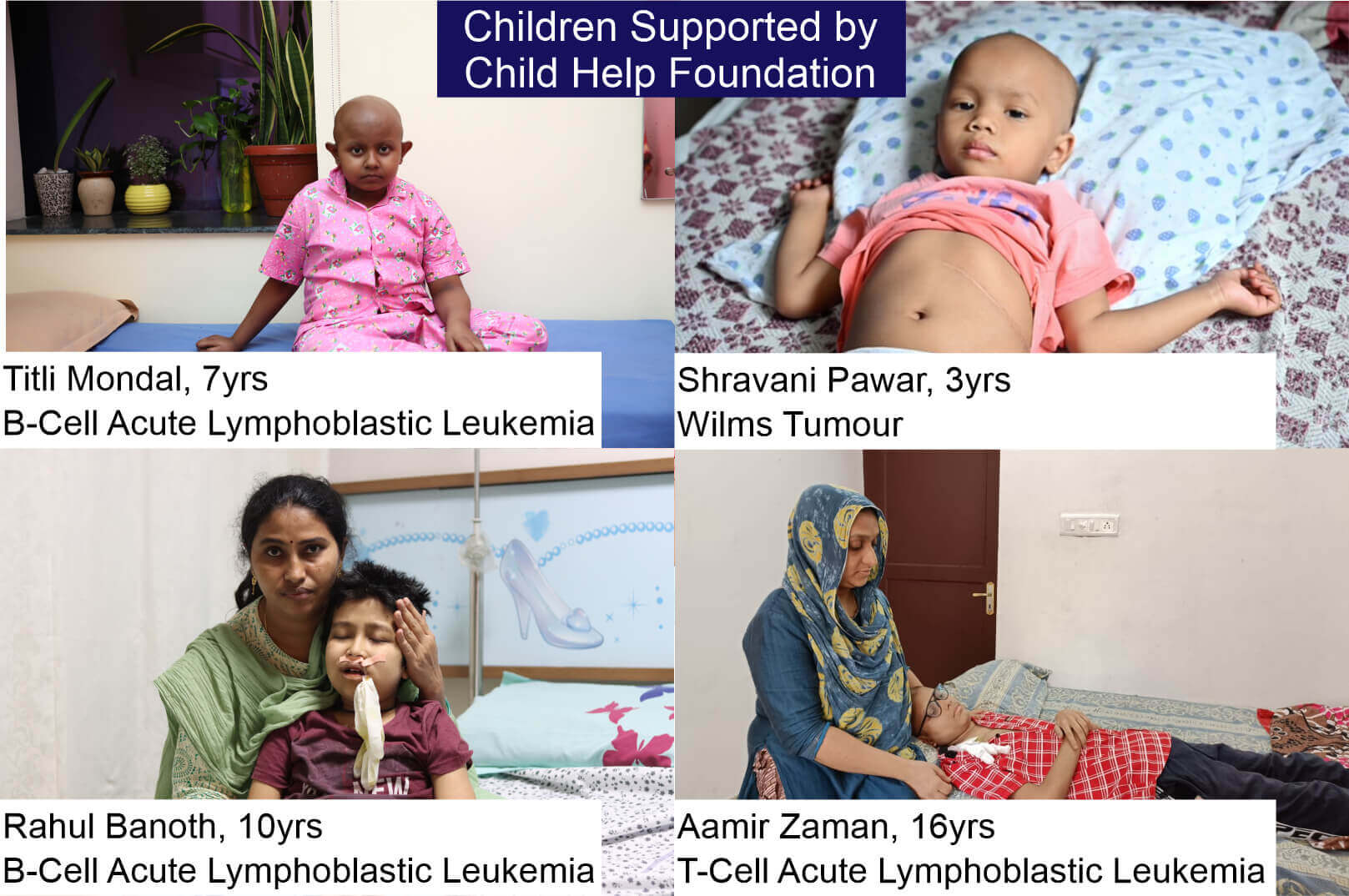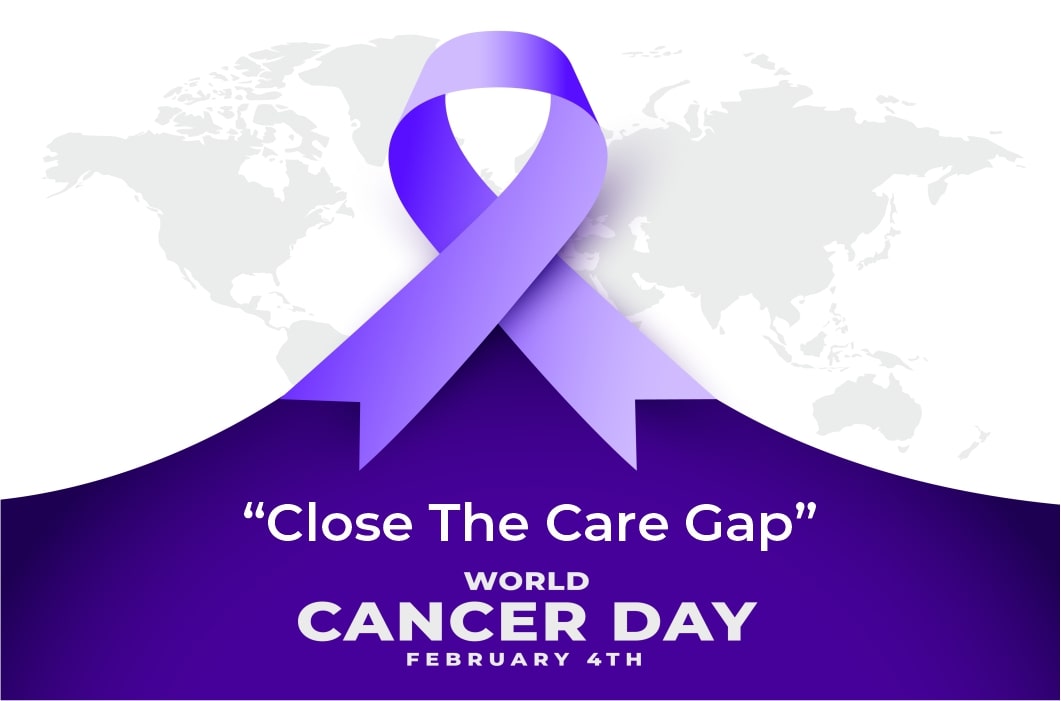World Cancer Day is also important to pay our tribute to the healthcare workers who are constantly working towards both preventing and curing this disease. So, this day can be used to appreciate their contribution.
Pediatric Cancer, also known as Childhood Cancer, is "a term used to describe cancers that occur between birth and 14 years of age." Pediatric cancers have a different nature than adult cancers. Cancers in children are sometimes hard to recognize because common illnesses or everyday bumps and bruises can mask the early warning indications.
Cancer begins with a genetic change in single cells that then develops into a mass (or tumour) that invades other parts of the body and causes harm and death if left untreated. Unlike cancer in adults, most childhood cancers do not have a known cause. Many studies have aimed to determine the causes of childhood cancer, but very few cancers in children are caused by environmental or lifestyle factors. Most of them are usually the result of DNA changes in cells that take place very early in life.
Most common Cancers among Children:
Leukemia
Leukemia is a cancer of the bone marrow cells and blood. The bone marrow is the core or soft center of the long bones of the body where white blood cells (called leukocytes), red blood cells, and platelets are produced..jpg)
In children with leukemia, the bone marrow produces a lot of abnormal, immature white cells that are unable to fight infection. Eventually, these leukemia cells crowd out the healthy white blood cells, allowing viruses, bacteria and other microorganisms to infect the body and make a person sick. Leukemia cells also outnumber the red blood cells and platelets, making it hard for the body to get enough oxygen and stop bleeding after an injury.
Two types of leukemia that occur in children commonly are Acute Lymphoid Leukemia (ALL) and Acute Myeloid Leukemia (AML).
Acute myeloid leukemia (AML) starts in the bone marrow (the soft inner part of certain bones, where new blood cells are made), but most often it quickly moves into the blood, as well. It can sometimes spread to other parts of the body including the lymph nodes, liver, spleen, central nervous system (brain and spinal cord), and testicles.
In Acute lymphocytic leukemia (ALL), leukemia can progress quickly, and if not treated, would probably be fatal within a few months. Lymphocytic" means it develops from early (immature) forms of lymphocytes, a type of white blood cell.
Most children with leukemia have no known risk factors, so there is no sure way to prevent these leukemias from developing.
Acute lymphoid leukemia is the most common in children. Of the 57,377 cases of this cancer diagnosed in children in 2020, southeast Asia’s burden of 16,552 cases was the biggest, nearly 69 percent of which was in India.Brain and spinal cord tumours
Children's brain and spinal cord tumours are the second most prevalent cancers, accounting for around 26% of all cancers in children. There are numerous types of brain and spinal cord tumours, each with its treatment and prognosis. Most childhood tumours start in the lower brain, such as the cerebellum or brain stem. Headaches, nausea, vomiting, blurred or double vision, dizziness, seizures, difficulty walking or handling things, and other symptoms are all common. In both children and adults, spinal cord tumours are less prevalent than brain tumours..jpg)
There are numerous forms of brain and spinal tumours, as well as malignancies of the central nervous system, and treatment options vary. The abnormal growth of immature nerve or supportive cells in the brain or spine causes brain and spine cancers. These abnormal cells occupy space in the brain or spinal cord and can cause problems with regular functions.
Neuroblastoma
Neuroblastoma is cancer that starts with the abnormal growth of immature nerve cells, most often arising in the adrenal gland. The adrenal glands make hormones and are located outside the kidneys. It can also form in nerve tissue along the spine near the neck, chest or abdomen. These abnormal cells can disrupt the normal function of the affected body areas and can spread to the skin, bone marrow, bones, lymph nodes, and liver.
It develops in newborns and young children through undeveloped nerve cells. This disease usually affects children under the age of 5. Neuroblastoma begins in the adrenal glands and accounts for 7% of all childhood cancers in the United States. Males are more likely than females to have the disease, and only 1-2 percent of children with it have a family history of it.
Almost 90 percent of neuroblastoma is found in children younger than 5.Wilms Tumour (Nephroblastoma)
The most frequent type of pediatric renal (kidney) cancer is Wilms tumour, often known as nephroblastoma. It is most frequent in children between the ages of three and four, and it is rarer in older children and adults. Wilms Tumour can appear as a swelling or lump in the belly (abdomen). Other symptoms that the children may encounter include fever, discomfort, nausea, and a loss of appetite. It makes up roughly 5% of all childhood cancers.
This cancer is caused by the aberrant growth of immature kidney cells, which often results in a tumour on the child's abdomen and causes kidney function to be disrupted. This malignancy has the potential to spread to the lungs, liver, bones, brain, and lymph nodes.Lymphoma
Lymphomas originate in lymphocytes, which are immune system cells. The lymph nodes or other lymph tissues, such as the tonsils or thymus, are the most common organs for these cancers to begin..jpg)
They have the potential to harm the bone marrow and other organs. Weight loss, fever, sweats, exhaustion (fatigue), and lumps (swollen lymph nodes) under the skin in the neck, armpit, or groin are all symptoms that depend on where cancer develops.
Hodgkin lymphoma ( or Hodgkin disease) and non-Hodgkin lymphoma are the two most common kinds of lymphoma. Both forms can be seen in both children and adults.
Hodgkin lymphoma, sometimes called Hodgkin disease, is rare in children younger than five years of age. This type of cancer is very similar in children and adults, including which types of treatment work best.
Non-Hodgkin lymphoma is more likely to occur in younger children than Hodgkin lymphoma, but it is still rare in children younger than three. The most common types of non-Hodgkin lymphoma in children are different from those in adults.Retinoblastoma
Retinoblastoma is a cancer of the eye. It is responsible for around 2% of all childhood cancers. It is most common in children under the age of two, and it is uncommon in children beyond the age of six.
Retinoblastomas are commonly detected when a parent or doctor sees something strange about a child's eye. When you shine a light in a child's eye (or take a flash photo), the pupil (the dark spot in the centre of the eye) appears red because of blood in the back of the eye vessels. The pupil of an eye with retinoblastoma is generally white or pink.Bone cancer
Bone cancers are more common in older children and teenagers, although they can strike anyone at any age. They are responsible for around 3% of all childhood cancers.
In children, there are two forms of primary bone cancers:
Osteosarcoma is most frequent in teenagers, and it usually originates near the ends of the leg or arm bones, where the bone is rapidly expanding. It frequently causes bone discomfort that worsens at night or after physical exertion. It might also result in swelling surrounding the bone.
Ewing sarcoma is a kind of bone cancer that is less prevalent. It is most common in young teenagers. The pelvic (hip) bones, the chest wall (such as the ribs or shoulder blades), or the middle of the leg bones are the most likely areas for it to originate. Bone pain and swelling are common symptoms.

Treatments
Low and middle-income countries (LMICs), including India, account for nearly 90 percent of the pediatric population and more than 80 percent of the childhood cancer burden.Only about 15-45 percent of children diagnosed with cancer in low- and middle-income countries were treated and survived, compared to more than 80 percent in high-income countries, reported the World Health Organization (WHO) on February 12, 2021.
.jpg)
